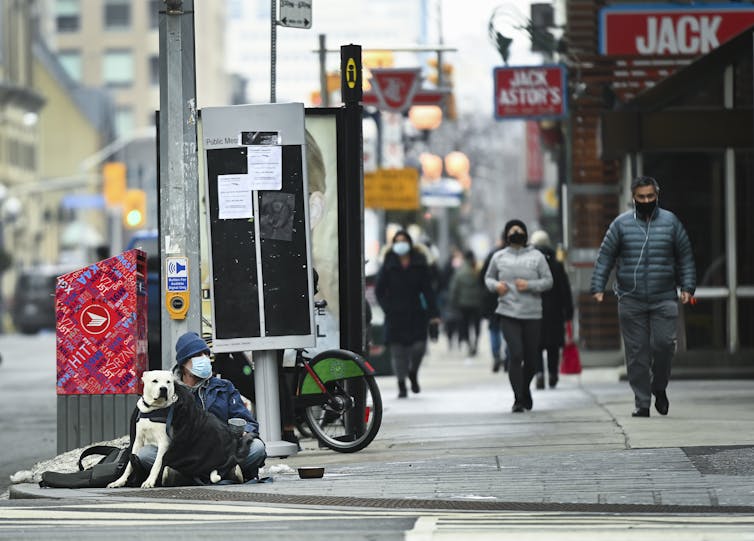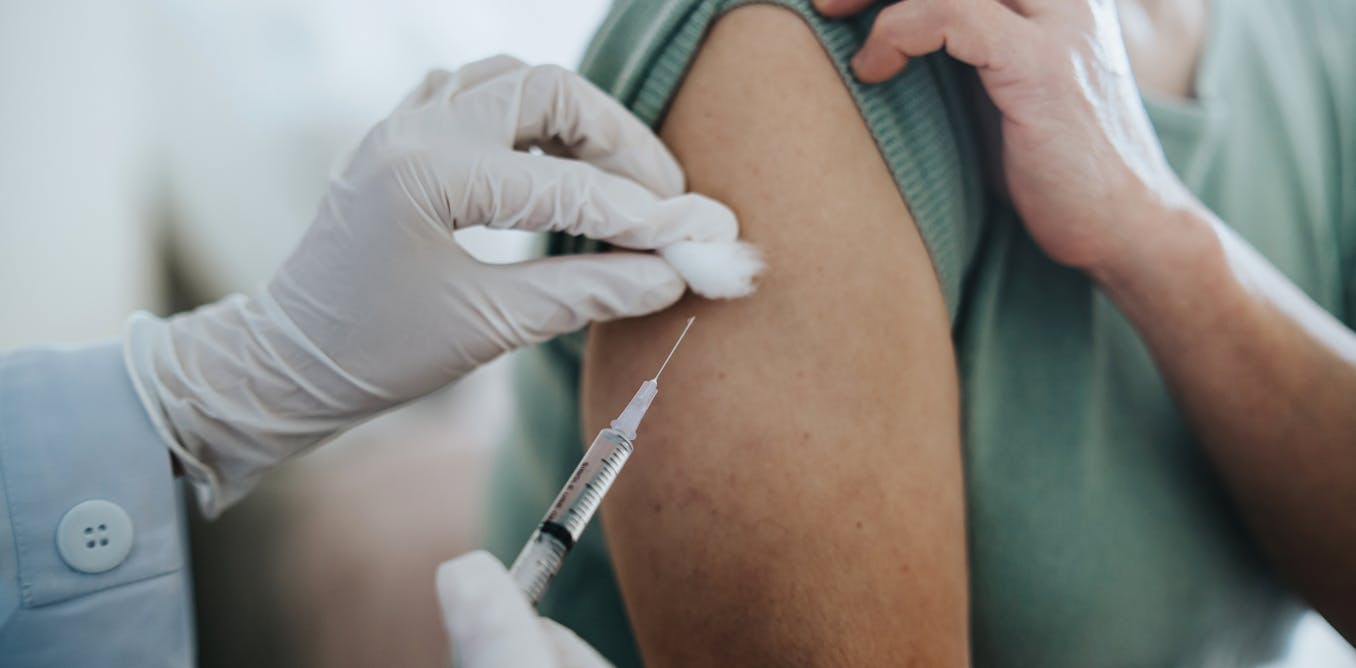Having a pet can be expensive, but being able to access health care for your pet should not be a luxury.
Around 25 per cent of unhoused people have a companion animal that supports them. Beyond the social benefits of living with a pet, the connections that companion animals provide can lead to positive physical and psychological benefits, assist in recovery from addiction and lead to better emotional and mental health for unhoused people.
However, having a pet can sometimes prevent individuals from accessing critical services, health care and community spaces. Taking pets to the vet can be expensive, and hospitals and many short-term shelters do not accept animals. Finding pet-friendly housing options can be very difficult, while those that are available are typically priced higher than other rental units, creating a challenge for those with lower incomes.
While people dealing with homelessness face a wide array of struggles, ‘One Health’ clinics can be an important way to provide health care to both unhoused people and their pets.
Struggles owning a pet while unhoused
There have been unprecedented increases in the number of people experiencing homelessness, with an increase of 32 per cent between 2020 and 2023 in Greater Vancouver alone, according to the Homelessness Service Association of BC.
Owning a pet can make it difficult to care for yourself. Pet owners in particular face challenges getting their animal vaccinated, or having to choose between feeding pets or themselves. Pets are frequently not welcome in shelters or cooling centres. This means that when unhoused people with pets seek basic services for accommodation or try to escape extreme heat or cold, they (and their pet) are excluded from these spaces.
When there are so many intersecting issues facing unhoused people, how can we ensure that pet ownership is not another hurdle to overcome?
(AP Photo/Richard Vogel)
One Health clinics
One of the most effective models to support unhoused individuals and their companion animals is ‘One Health’ clinics. These are integrated interdisciplinary clinics that provide services for people and their pets. Both types of health-care services work in parallel.
For example, in Seattle’s One Health clinic, health care for humans includes diagnostic, screening, mental health, sexual health and gender-affirming care. Services for pets includes routine vaccinations, treatment for fleas and ticks, and referral for more complex procedures such as spay and neutering. In this way both a person and their pet can receive care in the same visit.
In Vancouver’s Downtown Eastside, there are irregular one-day pet clinics provided by Community Veterinary Outreach (CVO), a national registered charity, with 11 locations across Canada and a 20 year old history. The one-day clinic typically runs four times a year in Vancouver, and is funded by the University of British Columbia’s Community-University Engagement Support grant to develop a ‘One Health’ clinic to provide human and animal health care.
Services provided by the clinic are similar to those by the Seattle ‘One Health’ Clinic but also include providing pet food and supplies, with volunteer nurses and mental health practitioners for support and referrals. These services are run in community centres on the Downtown Eastside, and have been running in Vancouver since 2016.
Other similar services are also provided by the Regional Animal Protection Society, Charlie’s Food Bank and Atira Pet Outreach. There have been countless positive stories from clients who have benefited from CVO’s ‘One Health’ clinic, and it is a service that has a high demand.

THE CANADIAN PRESS/Nathan Denette
Given a growing need for these kinds of facilities, governments should invest in such multicare clinics. These clinics can be less expensive than other initiatives cities undertake in response to homelessness. For example, in 2022-23 CVO spent $242,718, mostly on emergency relief, medical supplies, services and delivery. By contrast, in 2023 evicting unhoused people in the Downtown Eastside cost the City of Vancouver more than $550,000.
Investing in long-term solutions that address health care in a holistic way can transform how we support unhoused people in our communities and their pets. By transforming our approach to human and animal care, we can begin to address some of the systemic barriers that disproportionately affect marginalized communities.
Doris Leung, Kelsi Jessamine and Melanie Barham from CVO, and Mark Haraka from the Evelyne Saller Centre, contributed to this article.

The post “How ‘One Health’ clinics support unhoused people and their pets” by Raymond Ho, PhD Student in Clinical Forensic Psychology, Simon Fraser University was published on 06/25/2024 by theconversation.com





































